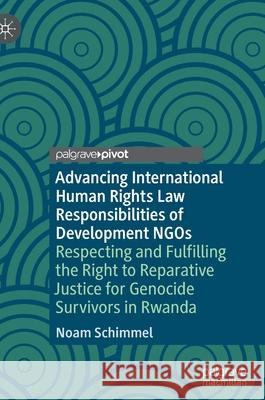Advancing International Human Rights Law Responsibilities of Development Ngos: Respecting and Fulfilling the Right to Reparative Justice for Genocide » książka
topmenu
Advancing International Human Rights Law Responsibilities of Development Ngos: Respecting and Fulfilling the Right to Reparative Justice for Genocide
ISBN-13: 9783030502690 / Angielski / Twarda / 2020 / 140 str.
Advancing International Human Rights Law Responsibilities of Development Ngos: Respecting and Fulfilling the Right to Reparative Justice for Genocide
ISBN-13: 9783030502690 / Angielski / Twarda / 2020 / 140 str.
cena 240,93
(netto: 229,46 VAT: 5%)
Najniższa cena z 30 dni: 231,29
(netto: 229,46 VAT: 5%)
Najniższa cena z 30 dni: 231,29
Termin realizacji zamówienia:
ok. 22 dni roboczych.
ok. 22 dni roboczych.
Darmowa dostawa!
Kategorie BISAC:
Wydawca:
Palgrave MacMillan
Język:
Angielski
ISBN-13:
9783030502690
Rok wydania:
2020
Wydanie:
2020
Ilość stron:
140
Waga:
0.36 kg
Wymiary:
21.01 x 14.81 x 1.27
Oprawa:
Twarda
Wolumenów:
01
Dodatkowe informacje:
Wydanie ilustrowane











